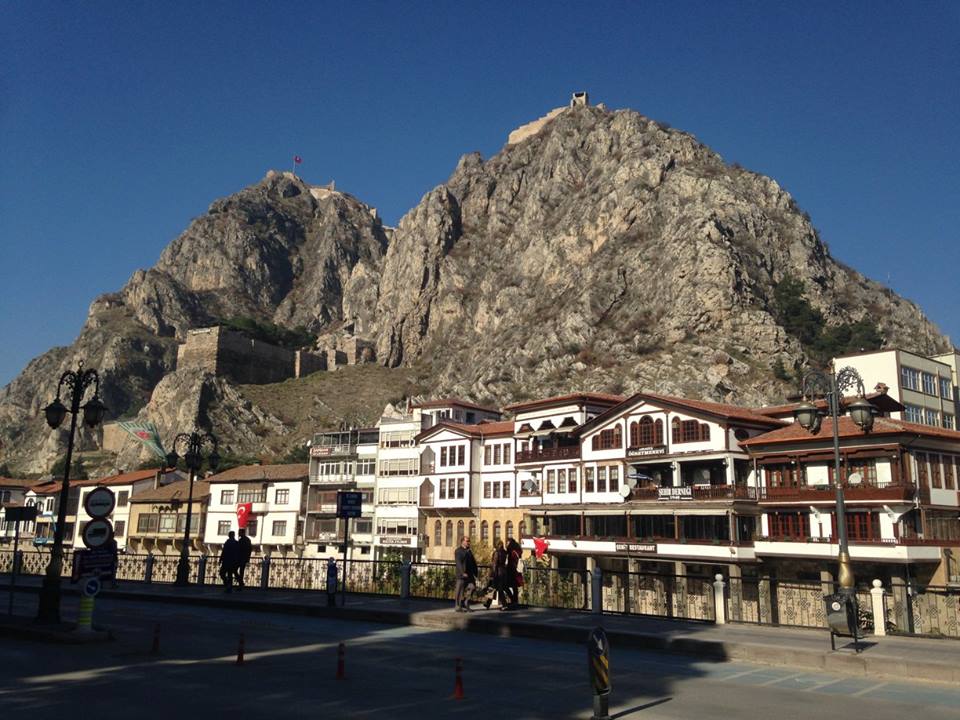St. Thomas University is calling on all those struck by wanderlust to consider taking advantage of its international exchange program.
Carrie Monteith-Levesque, STU’s international student advisor, said the exchange experience is an invaluable one.
“It affords students the opportunity to experience a different language, culture and educational system while earning academic credit,” she said.
“Taking a semester or a year to study abroad is an excellent way to enhance a St. Thomas University degree, and allows students to challenge themselves in ways they may have never imagined.”
The program at STU allows students to study one or two semesters abroad. STU has 12 partner universities in 11 different countries including Australia, Brazil, Chile, China, France, Japan, South Korea, Malta, Sweden, Spain and Turkey.
Students must pay tuition fees and are responsible for their accommodations and travel to their host university. Accepted students can apply for a travel bursary of up to $1,500.
“In turn, STU receives exchange students from our partner universities allowing for greater diversity and internationalization on campus,” Monteith-Levesque said.
She said the benefits to study abroad are plentiful: experience a new culture by sharing in customs, traditions and cultural practices, experience a different style of education and courses, study and learn a new language, explore the host country and expand your travels to neighbouring countries and make lifelong friends from around the world.
Sam Titus is one of STU’s many students who have taken advantage of the exchange program. He said he got involved by chance after seeing STU had partnered with a university in Turkey, a country he’d always wanted to visit.
“After a few information sessions and a meeting with a representative from the school, I decided to take the plunge and go to Turkey,” he said.
“For me, it was always more about the chance to travel and see the world than it was about going to school.”
Titus said school was secondary on his mind going into the trip, but it ended up becoming an important element.
“The school I went to had a student population of about 40,000 and existed almost like a small city. The campus had a three-floor mall with stores and full restaurants, as well as three grocery stores, and several little cafés and one-off restaurants scattered around and the whole thing was serviced by an internal transit system.
“I lived in residence and roomed with three Turkish students who I ended up being really close with. So I think the cultural exchange and just that opportunity to experience such a foreign culture was really rewarding and something I would never have gotten if I had stayed at STU.”
Titus said he met tons of interesting people from around the world during his stay in Turkey and travelled quite a bit. This included organized trips around Turkey, but also ones he went on himself with friends, including a stay in Italy and Greece at Christmas.
Titus said any student interested in going on an exchange should direct themselves to Monteith-Levesque and talk to former exchange students.
Students interested in following in Titus’ footsteps must meet the minimum requirements.
A student must have completed between 30 to 60 credit hours by the time the exchange is to take place, have an annual grade point average of at least 3.0 and submit an application by Feb. 13, 2017.
The application consists of the respective application form, a 250-word cover letter explaining “why you think you would be a good candidate for an academic exchange, and what you hope to gain from the experience,” as well as a confidential letter of recommendation from a professor and an outline of financial plans.
With acceptance from STU, a student must then apply to the host university.
Monteith-Levesque said a liberal arts degree encourages students to think critically about the world around them and an international exchange allows them to physically move across those borders.
“Students will likely come back with a greater understanding of what it means to be a global citizen. Living and learning in a different culture emphasizes the importance of international collaboration and widespread engagement,” she said.
Titus said he could not stress enough how greatly his exchange experience benefited him.
“A liberal arts education is, at its core, about discovering your place in the world and learning how to interact with it in a meaningful way. There are few experiences that can compare to actually living and learning in a new environment like an exchange.”

